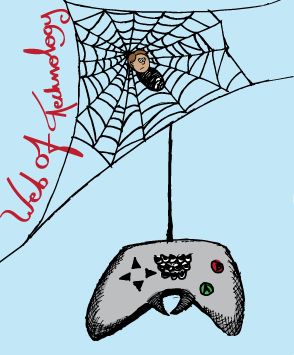
The little girls looked no more than 6 and 8. The youngest one, with her hand on her hip, swayed to the beat as the eldest sang along to the lyrics.
At first, their pastime seemed innocuous. It had been a while since I’ve seen children outside, engaged in play and enjoying the sunshine. As I approached, I started to listen to the song they were belting out with innocent cheer.
“Come on n—- is you trickin or what?
Flo-fl-flow tighter than a dick in the butt.”
To my astonishment, the girls chanted the lyrics to “Roger That” by Nicki Minaj, as if they knew what they were actually singing about. No parent in sight.
Amongst the normalization of vulgar language, provocative clothing and growing platforms of technology geared towards youth, have become common factors in pre-adolescent culture. Children seem to be growing up faster these days. Woe to the children of the Millennials.
When I was a child, which was not that long ago, my brothers and I would spend our days outside rough-housing in the backyard, rain or shine.
Born in an era when technology was just advancing, we were not overly concerned with the newest gadgets, fashion trends or social media. When we stumbled across adult content, and depending on the topic, in a singsong voice, my mother would say, “Wait until you’re older and then I’ll explain.”
In what I like to call “the land before” [pre-technology dependency], in elementary school there was no peer pressure to have the latest iPhone, you were not mocked for not owning name-brands, and there was no awareness of sex and how babies were made. Kids still played on swing sets; nursery rhymes were the only songs repeated within earshot and bullies’ taunts consisted of nothing more than “poopy head” and “dog breath.”
Born after 2000, Generation Z ushers forth a new type of youth. Birthed in a digital world equipped with smart phones, tablets and laptops, these kids come out of the cradle with the inherent ability to program apps, take selfies and download pirated content; while simultaneously monitoring their social media pages – yes pages – playing angry birds and cyberbullying the scrawny new kid from Iowa.
Access to inappropriate content is everywhere. The Internet permits instant availability to movies, video games, music and images that feature adult activity. Although parents try to monitor their children’s media content, the actualization of such a task is impossible.
Children stumble across these images, and in this case lyrics. While they might not be able to comprehend exactly what they are looking at or listening to, popular media culture shapes their views on violence, body image, sex, gender roles and self-identity.
The girls that I observed were introduced to explicit content at an early age, when normally they wouldn’t have knowledge of such content until an age when they’re able to process the information with a healthy understanding.
The 2012 study “Early Exposure to Media Violence and Later Child Adjustment” by PHD Caroline Fitzpatrick, Tracie Barnett, and Linda Pagani states, “Social cognitive theories suggest that children exposed to violent media may become desensitized to its arousing effect and come to feel less sympathy for victims. As a result, overly exposed children may be more able to plan and perform proactive acts of aggression.”
Children are like parrots. They pick up information and repeat it almost instantly. More and more I witness children inadvertently showcasing their sexuality, whether it is by thrusting their hips to explicit lyrics or adhering to fashion trends meant to entice.
Where has the innocence gone?
I worry for the children of the 21st century when they can’t concentrate without some form of screen technology in front of them; when they’re not even safe from bullies in their own bedroom, texting acronyms are common spelling errors in academics and children are comfortably sporting provocative clothing. Whatever happened to just letting a kid be a kid?

